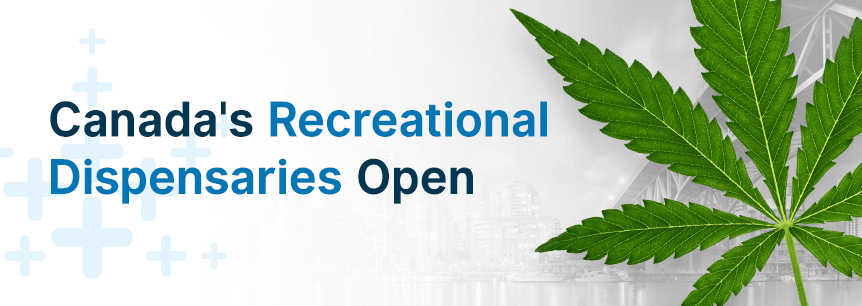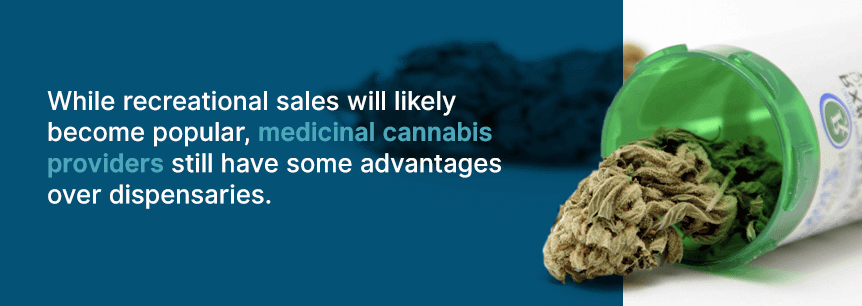
This summer, we reported that Canada legalized recreational marijuana on a national level. The Canadian government promised to put the legalization into effect on October 17, 2018. They kept that promise, and the country’s first recreational cannabis dispensaries opened on that date.
What do these laws mean for recreational marijuana in Canada? Where do they leave patients who participate in the medical cannabis program? Most importantly, how do these changes improve access to medicinal cannabis care in Canada? Read on to learn the answers to these questions and more.
If you pay attention to cannabis laws, you already know that legalization involves plenty of nuances. While Canada has legalized recreational marijuana, they allow it only in certain situations. You need to keep these details in mind when you visit a recreational dispensary. Under the new laws, you can do the following activities at age 19 or over — or 18 in Quebec and Alberta:
Regardless of your age, you cannot:
Canadians who plan to use recreational cannabis should check the country’s laws before doing any potentially illegal activity.
When the federal government legalized recreational marijuana, they left many of the details up to each province. Provinces can decide on factors like legal age of use, and many aspects of dispensary operation. These laws impacted which stores could open on October 17. Some of the province-related considerations to know include:
Before Canada had legal recreational cannabis, they had a medical marijuana program. In fact, patients still take advantage of the benefits provided to them as members. Through the medicinal cannabis program, patients can order premade medicine from providers, who operate differently than dispensaries. A patient signs up to use a provider’s services and makes orders based on their recommendation. While dispensaries can sell plants and seeds, medical patients must get them from Health Canada.
While recreational sales will likely become popular, medicinal cannabis providers still have some advantages over dispensaries. A major deciding factor is insurance coverage. Drug plans will not cover recreational purchases, but some of them do include medical marijuana. Also, medical cannabis may cost less than its recreational counterpart. Canada additionally lets registered patients carry 150 grams of cannabis, no matter where they live.

Long story short, providers aren’t going anywhere. However, they may see some losses in sales now that adults over 19 have dispensaries. Under the medical marijuana program, your doctor decides how often you need to update your registration. With the maximum time between renewals set at one year, certified patients have frequent appointments to make. Meanwhile, you don’t need to visit a doctor to get recreational marijuana.
Since Canada’s medical marijuana program will stay the same, adding recreational cannabis as an option will increase access to cannabis medicine. Patients who cannot register with the government can go to a retail dispensary instead. Canadian dispensaries sell similar products to those offered by providers and stock growing materials. When edibles and concentrates become legal, patients will have more product types to buy at recreational dispensaries than from providers.
However, patients have to vet their dispensary choices carefully. During the transition to legal recreational marijuana, some black market dispensaries may continue to operate. Some of these locations acted responsibly before legalization and plan to become licensed. Meanwhile, others may not put their products through adequate quality testing. Check with your province’s recreational marijuana authority if you don’t know the status of a dispensary.
On October 17, Canada took one step closer to safe and legal access to medicinal marijuana. We can’t wait to see how this development will affect Canadians and other marijuana programs around the world. Although Uruguay was the first country to legalize recreational cannabis, Canada has much more global influence. Whatever happens next in the world of Canadian marijuana could shape the way other countries see cannabis.
While we wait and observe, you can always count on us to keep you updated on the world of cannabis medicine. You can find the links to our social media pages to the right of the search icon in the top menu.
No Information on MarijuanaDoctors.Com should be used to diagnose, treat, prevent or cure any disease or condition. You can view our Full Disclaimer here.